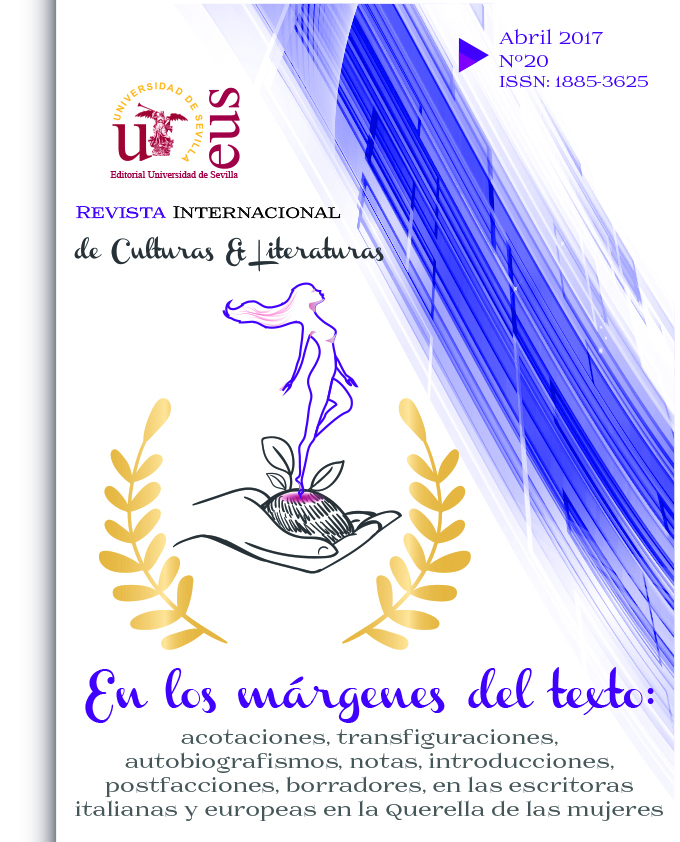Development of young researchers in Mexico. A reflection from the gender perspective
DOI:
https://doi.org/10.12795/RICL.2017.i20.03Keywords:
Índice de Desarrollo Humano, Licenciatura en Idiomas, jóvenes investigadores, verano de investigación científica, currículum flexible, titulación por tesisAbstract
In Mexico, as in the rest of the countries of the emerging economies, the human development index is assumed as one of the indicators of the population’s condition in relation to three variables: long and healthy
life, knowledge and dignified life level. Mexico is on the 74th positition in the human development ranking (UN, 2014). Hence, researchers’ training is one of the variables that underlie the education indicator. In order to impact in this area, the Mexican Academy of Science has implemented a summer scientific
research program, at the higher level, for students interested in research, in this case, Degree in languages of the Autonomous Juárez University of Tabasco in the DAEA. The selected indicator to demonstrate the competence (Tobón, 2013) to be developed by the researcher is the thesis degree (UJAT
2015). The supervisor or tutor follows up on this work from the line of learning in the LI program of research methodology that is taught in a pedagogical model of flexible curriculum (UJAT, 2005).
Downloads
References
Alonso, E., “Conflict, opacity and mistrust in the digital management of profesional translation projects”, The International Journal for Translations & Interpretating, España, Universidad Pablo de Olavide, 2016.
Asociación Mexicana de Ciencia. “25 Aniversario: Verano de la Investigación Científica.”, Boletín AMC/189/15, 2015.
Celis C., G. “La formación de investigadores en México”, Ciencia y Desarrollo, México, vol. 24, núm. 140, 1998, pp. 33-41.
Deci, E. L. y Pittman, T. S., (eds.), Achievement and Motivation. A Social and Developmental Perspective, Cambridge, CU Press, 1998.
Glasser, B.J., Strauss, A.L., The Discovery of Grounded Theory. Reprinted 2006, USA, Aldine Transaction, 1967.
Instituto Nacional Indigenista, 2010.
Krashen, S., Second Language Adquisition. Theory, Applications and Some Conjectures, Mexico, Cambridge University Press, 2013.
Lepper, M. y Henderlong, J., “Turning ‘Play’ into ‘Work’ and ‘Work’ into ‘Play’: 25 Years of Research on Intrinsic versus Extrinsic Motivation”, C. Sansone y J. M. Harackiewicz (eds), Intrinsic and Extrinsic Motivation. The Search for Optimal Motivation and Performance, San Diego, Academic Press, 2000.
Modelo Educativo de la Universidad Juárez Autónoma de Tabasco, México, UJAT, 2005. OCDE, Panorama de la Educación, Indicadores de la OCDE, 2015.
Ortega, L., Understanding Second Language Adquisition, New York, Routledge, 2013.
Ortíz, L. V., “Particularidades institucionales en la formación y desarrollo de investigadores universitarios: algunas experiencias de sus principales actores”, Revista de la Educación Superior, Vol. XL (2), No. 158, Abril – Junio 2011, pp. 79-90.
Piña, G. J.M., Informe Anual de Labores del Rector, México, UJAT, 2015.
Rivas T. L. A., “La formación de investigadores en México”, Revista Perfiles Latinoamericanos, núm. 25, diciembre, Facultad Latinoamericana de Ciencias Sociales, México, 2005, pp. 89-113.
Rivas T. L.A., La formación de investigadores en México. Revista Perfiles Latinoamericanos, núm. 25, Facultad Latinoamericana de Ciencias Sociales Distrito Federal, México, 2005, pp. 89-113.
Romero A., M. y Ferra P. M., “Cómo motivar a Aprender en la Universidad: Una Estrategia Fundamental Contra el Fracaso Académico en los Nuevos Modelos Educativos”, Revista Iberoamericana de Educación, nº 51, 2009, pp. 87-105.
Ryan, R. M., “The Initiation and Regulation of Intrinsically Motivated Learning and Achievement”, Ann K. Boggiano, 1992.
Sánchez D. R. A., “La conformación del oficio de investigador en el doctorado en Pedagogía de la UNAM. Seminario permanente de investigación y formación sobre Pierre Bourdieu”, Revista Latinoamericana de Estudios Educativos (México), Centro de Estudios Educativos, A.C. México, 2010.
Strauss, A., Corbin, J., Bases de la investigación cualitativa. Técnicas y procedimientos para desarrollar la teoría fundamentada, Colombia, Universidad de Antioquía, 1990.
Tobón T. S., Formación Integral y Competencias, Bogotá, Ecoe Ediciones, 2013.
Zusho, A. Pintrich, P. R. y Coppola, B., “Skill and Will: The Role of Motivation and Cognition in the Learning of College Chemistry”, International Journal of Science Education, vol. 25, n.º 9, 2003.

